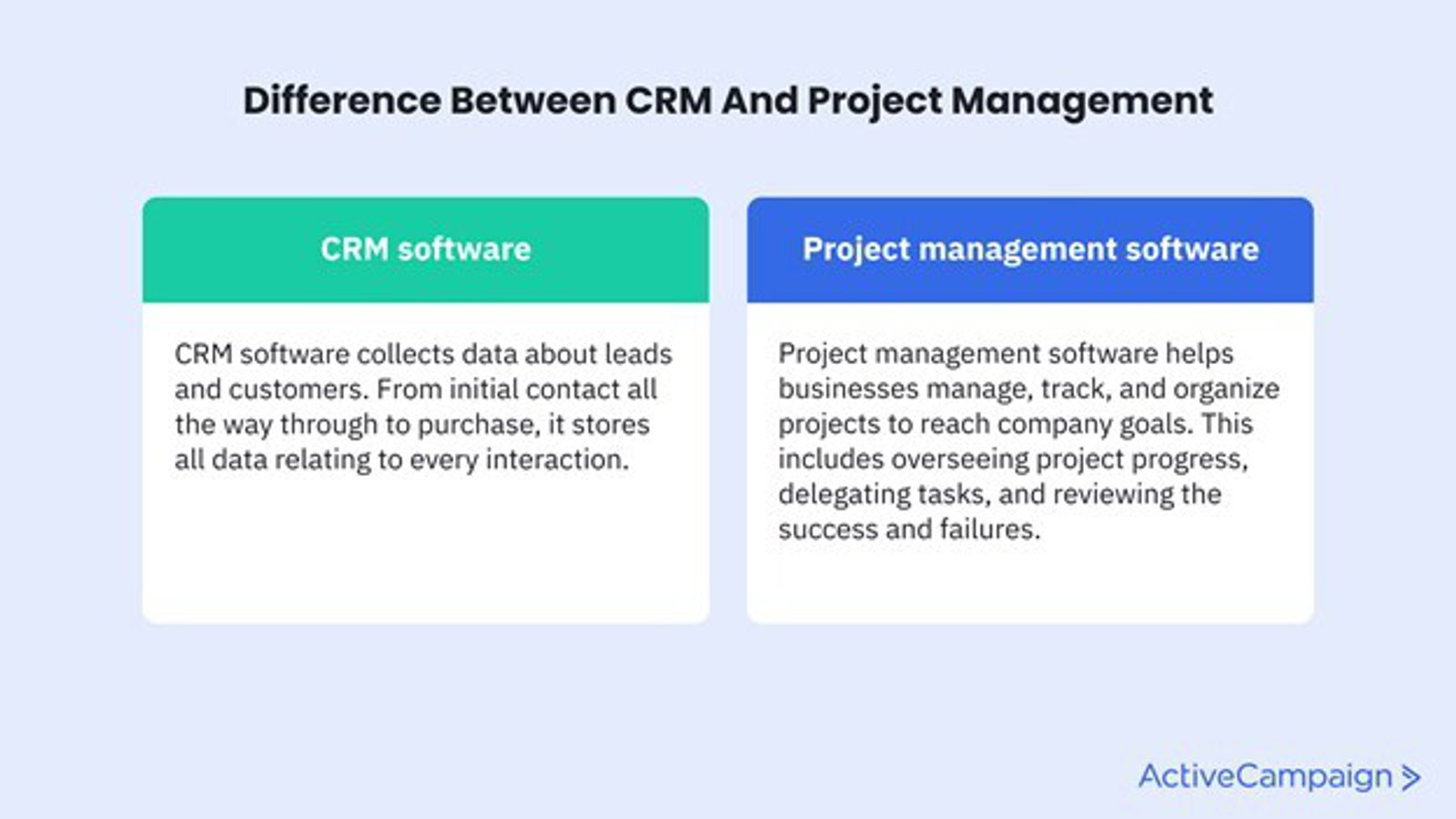Chances are, you’re already using a customer relationship management (CRM) platform. You might even be using project management software, too.
But have you ever thought about using a platform that can do both?
Using a CRM platform with project management capabilities can be a real game-changer for several reasons. It can streamline your business processes, centralize your communications, and provide customers with a better experience.
Keep reading to find out more about the benefits of an all-in-one CRM project management platform, and how to find a solution that’s right for your business.
CRM Project Management Guide
- CRM vs. project management: What’s the difference?
- 4 benefits of using an all-in-one CRM project management platform
- How to find the right CRM project management solution for your business
- Use ActiveCampaign for customer experience automation
CRM vs. project management: What’s the difference?
Before we dive into the benefits of using a CRM project management platform, let’s take a look at how they’re different.
A CRM solution manages customer information. It focuses on the external activity of the business and how customers behave throughout the sales pipeline. Businesses use this information to better understand customers and provide them with a better buying experience.
CRM platforms can also help businesses optimize their sales process. Exactly how it helps depends on the software you’re using, as features vary from platform to platform. Let’s use lead scoring as an example.
A CRM tool with lead scoring capabilities helps you prioritize high-quality leads. You can categorize your leads based on customer behavior and the likelihood they’ll convert. With this information, you can customize how and when you target your consumers with certain messaging.
Unlike a CRM system, project management software is used to create, manage, and monitor projects. It involves project planning, task management, resource allocation, and change management.
This will allow business leaders to ensure projects are delivered within the agreed timeline and budget.
It’s also a way for project managers to track project progress in real-time, allowing them to identify areas of improvement in their processes.
For example, if a project is falling behind and not hitting its milestones, the project manager can easily visualize what’s causing the holdup and put things right.
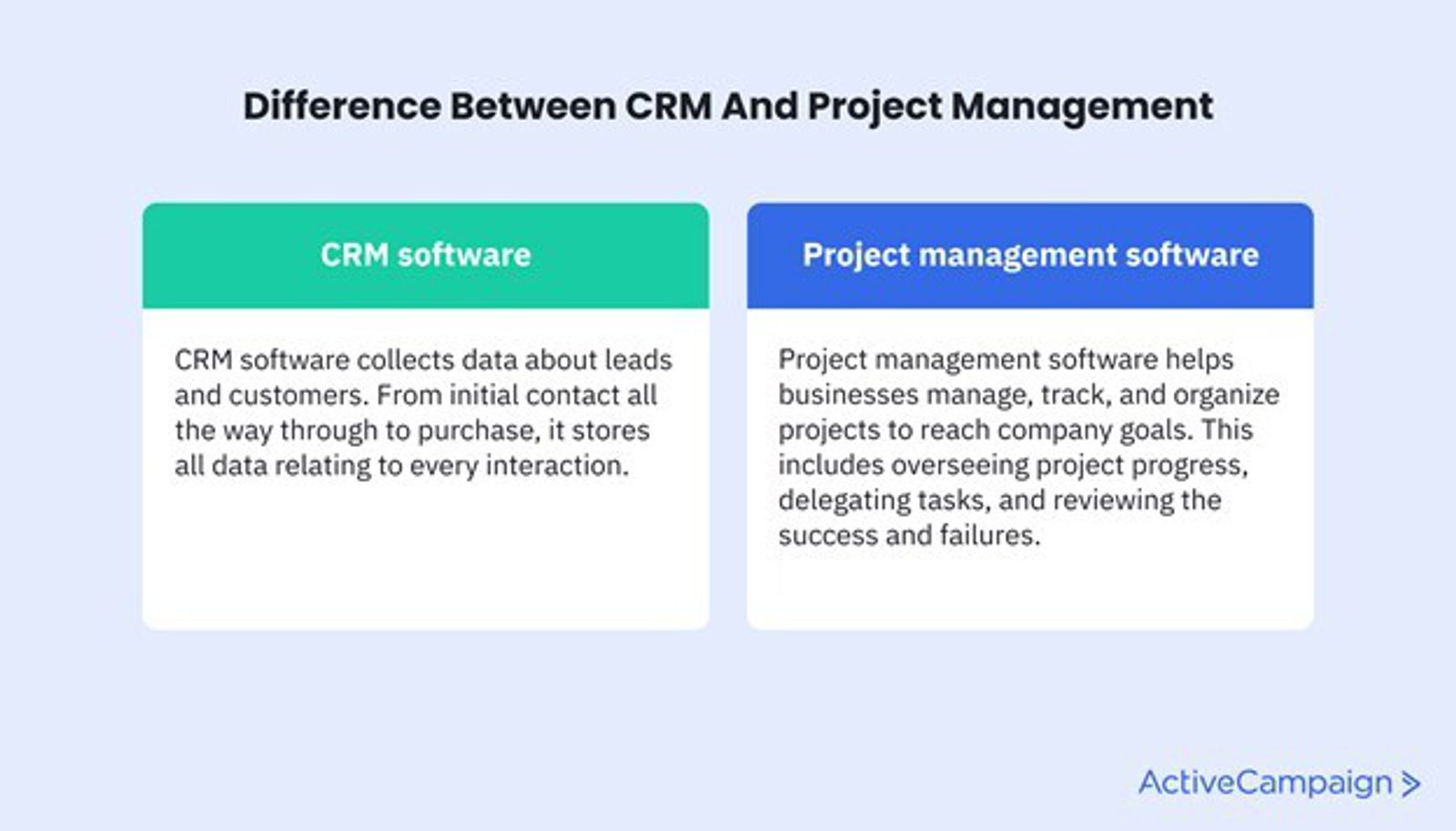
Now that we’ve outlined the differences, let’s focus on how using a combination of CRM and project management can be beneficial for your business.
4 benefits of using an all-in-one CRM project management platform
An all-in-one CRM and project management platform is what you should be aiming for.
We’re not saying you can’t use separate programs to manage your customer relationships and projects, but combining the two has a lot of advantages.
Let’s take a look at what these are.
1. Provide a better customer experience
In the last year, customer behavior has changed. Consumers are more digitally aware, have higher expectations, and are more selective with purchases.
Simply put, customers want a good online experience.
By integrating your customer relationship and project management activities, you can provide customers with a better experience.
Here’s how:
Meet customer needs quickly
Customer needs are met quickly because an all-in-one platform gives you tightened and streamlined processes.
For example, if a customer submits a ticket through your website that they’re having an issue with your software, the information can automatically be pulled into your project management software. A task will be created, a project team member will be assigned, and the customer can expect a prompt response and resolution.
Plus, you can use the CRM features to track individual customer experiences and how many issues important clients are having. While using project management features to track recurring issues across multiple customers to identify areas for improvement in future versions.
Personalize the buying experience
Studies show that 60% of customers will become repeat buyers after a personalized experience. 52% also say that a personalized experience improves their satisfaction.
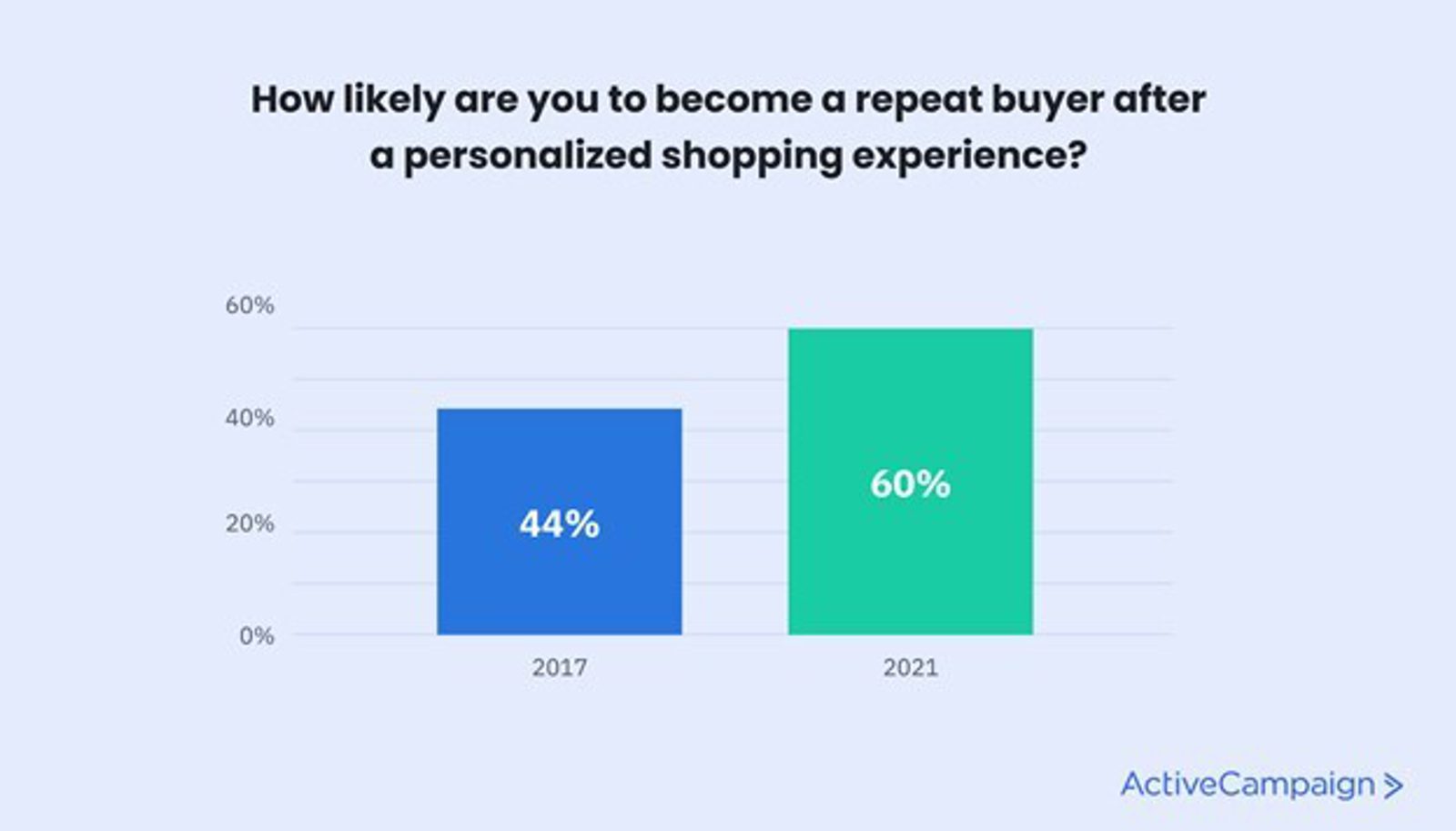
By combining your CRM data with project management, you can offer consumers a unique and tailored experience. And it’s clear that customers want a personalized experience, so they’ll be happier for it.
For example, you can track every customer who bought version 2.0 of your software or product and send them personalized email offers to let them know about the soon-to-be released version 3.0 as it progresses through the project life cycle.
Automate the buying experience
Aligning your CRM with your project management platform means you can automate the buying experience for your customers.
For instance, if a customer makes a purchase (the details of which will be sent to your CRM), your project management platform can be set up to automatically notify them of future releases or similar projects as they come on the market.
The buying process then becomes streamlined and efficient for the customer.
2. Standardize your processes
Having your CRM and project management as one platform allows you to streamline and standardize your processes. You can get work done quicker and be more productive with your time by doing this.
Think about it — you spend less time trying to figure out what certain processes are and more time getting the work done. You can simply follow the process that’s already outlined in the platform.
Let’s use customer retention as an example.
Imagine you’re trying to increase engagement from cold customers. To do this, you have a series of steps in place.
These include:
- Sending a series of emails to encourage engagement.
- Using paid ads and retargeting to promote your product across different channels.
This process will be clearly outlined in your all-in-one platform. You can see what steps you need to take, when to take them, and what to do at each stage of the process.
With this process in place, everyone can easily follow it, no matter what department they’re from.
3. Improve collaboration between departments
Project management platforms are known for being vital collaboration tools. But combining a CRM and project management platform means cross-departmental teams can easily collaborate across all areas of the business.
Take a look at sales and product development as an example. With both departments using the same platform, the collaboration between them becomes easier.
The sales team can easily share customer feedback with the product development team. This informs their work going forward, providing customers with products they want and helping the business succeed.
In return, the product development team can update the sales team on their progress with new products.
Sure, these teams can collaborate even if they don’t have a central platform to work from, but it’s certainly easier if everything is in one location.
4. Centralize your communication
Over 80% of business leaders agree that internal communication is vital for a positive employee experience.
The good news is that in addition to cross-departmental collaboration, an all-in-one platform improves communication within departments.
With an all-in-one CRM project management platform, internal communication becomes streamlined. Everyone has visibility of all communication in one location, making it easy to speak to colleagues and reducing the likelihood of communication silos.
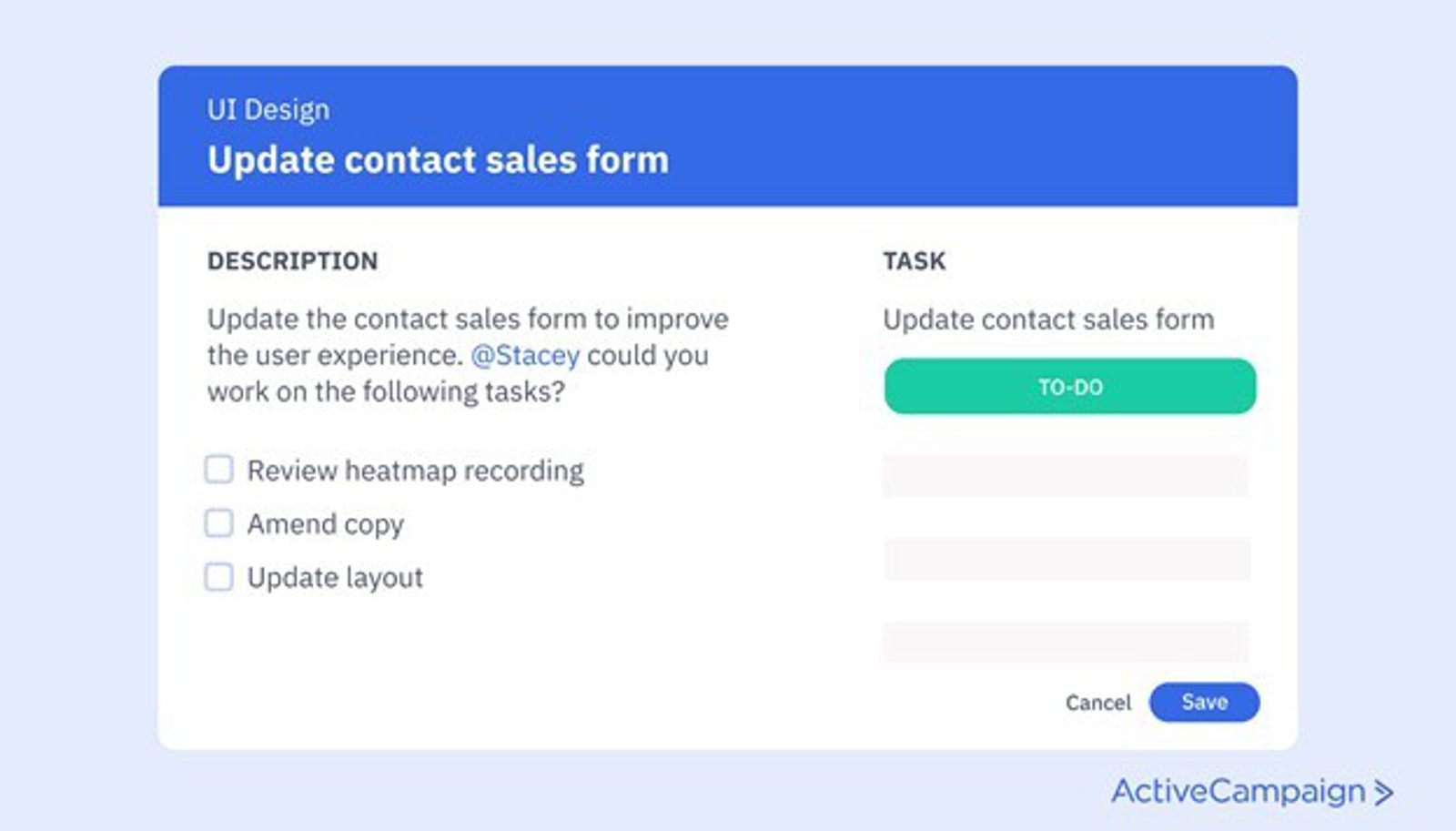
Communication silos occur when team members don’t communicate. But with easy access to instant communication, this becomes less of an issue.
How to find the right CRM project management solution for your business
Finding the right CRM project management platform is no easy feat. There are a lot of options to choose from, making it hard to find the platform that’s right for your business.
To make the process easier, we’ve outlined some key CRM and project management features for you to look out for when trying to find the right platform.
Even though we’re outlining some of the key features, this isn’t a conclusive guide. Every business is different, and you might need some additional features we haven’t listed.
To find the right platform for your business, spend some time identifying what features you need before you start your search. This will help you find a platform that has everything you’ll need.
Customization
Being able to customize your CRM project management platform is important.
Why?
Because customizations allow you to create an efficient workflow. If you can’t customize the software, productivity can take a hit. This can impact the customer experience, too.
Take lead scoring as an example.
You can create a unique and tailored buying experience for your leads based on their lead score. Consumers with a higher score can be prioritized over those with lower scores, giving your business a higher chance of securing sales.
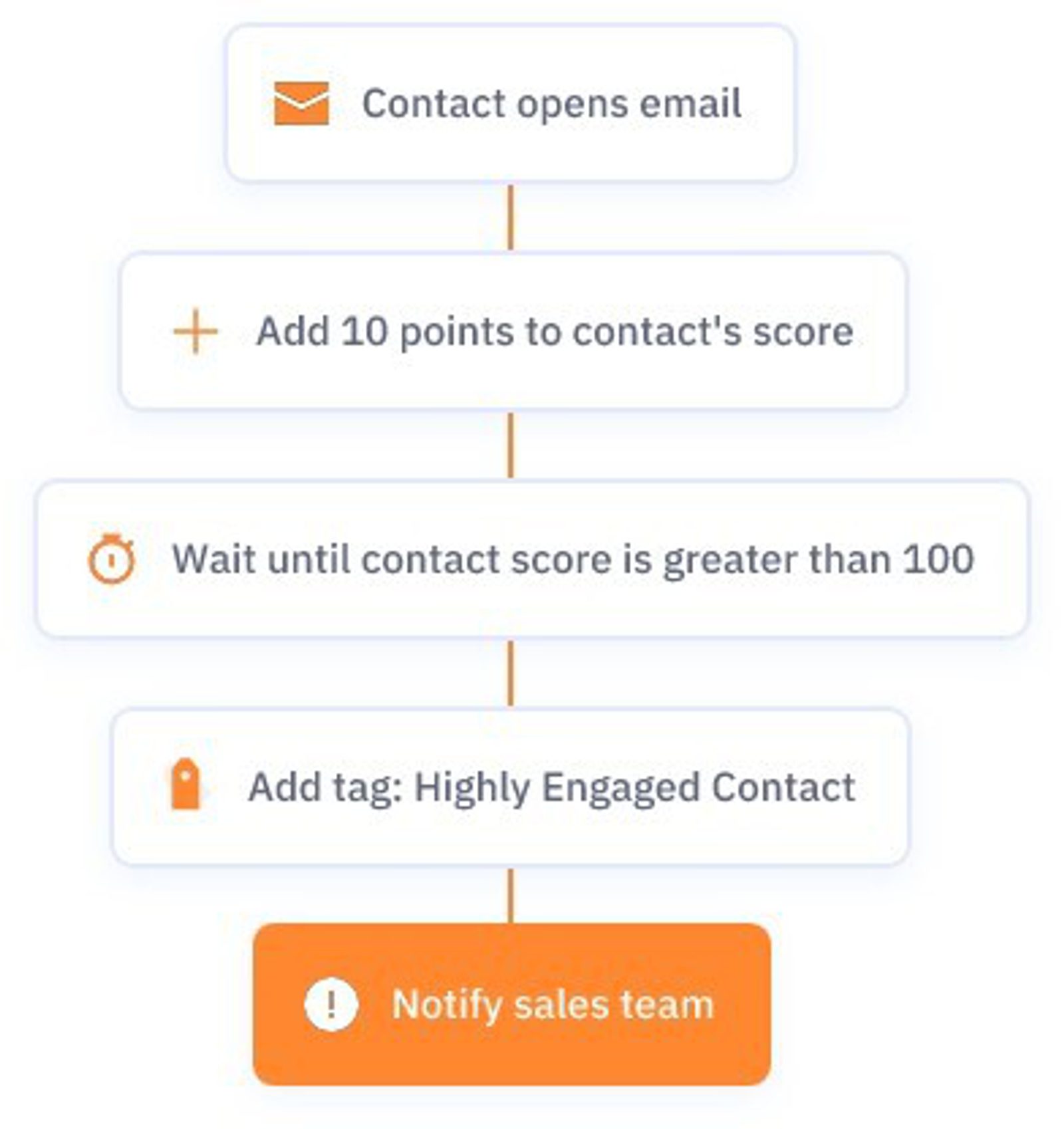
To see lead-scoring in action, take a look at Sneleentaxi. The company uses lead scoring to target prospective investors, helping them reach their goal of .5M Euros in two months.
So before you start looking for a CRM project management system, identify the customizable features you’ll need from it. This will narrow down your search and help you find a platform to meet your needs as a business.
Automation
There’s a reason why 73% of businesses use automation.
With workflow automation in place, you can streamline the CRM and project management processes. As a result, you can monopolize your time efficiently and provide customers with a better experience.
Look at Beefy Marketing as an example.
Beefy Marketing is a fully managed inbound marketing service, helping small businesses generate leads and grow.
The company found itself struggling to track its customers. Some were slipping through the cracks without being added to the email list or receiving welcome emails.
To help them capture all their customers and provide a personalized customer journey, the company used ActiveCampaign’s automation.
With marketing automation goals in place, the company was able to automate the entire email marketing process. No more customers are left hanging, and they’re all added to the email list at the appropriate time. The company even created a pizza-party automation to celebrate clients who launch a new project (yes, it’s as awesome as it sounds).
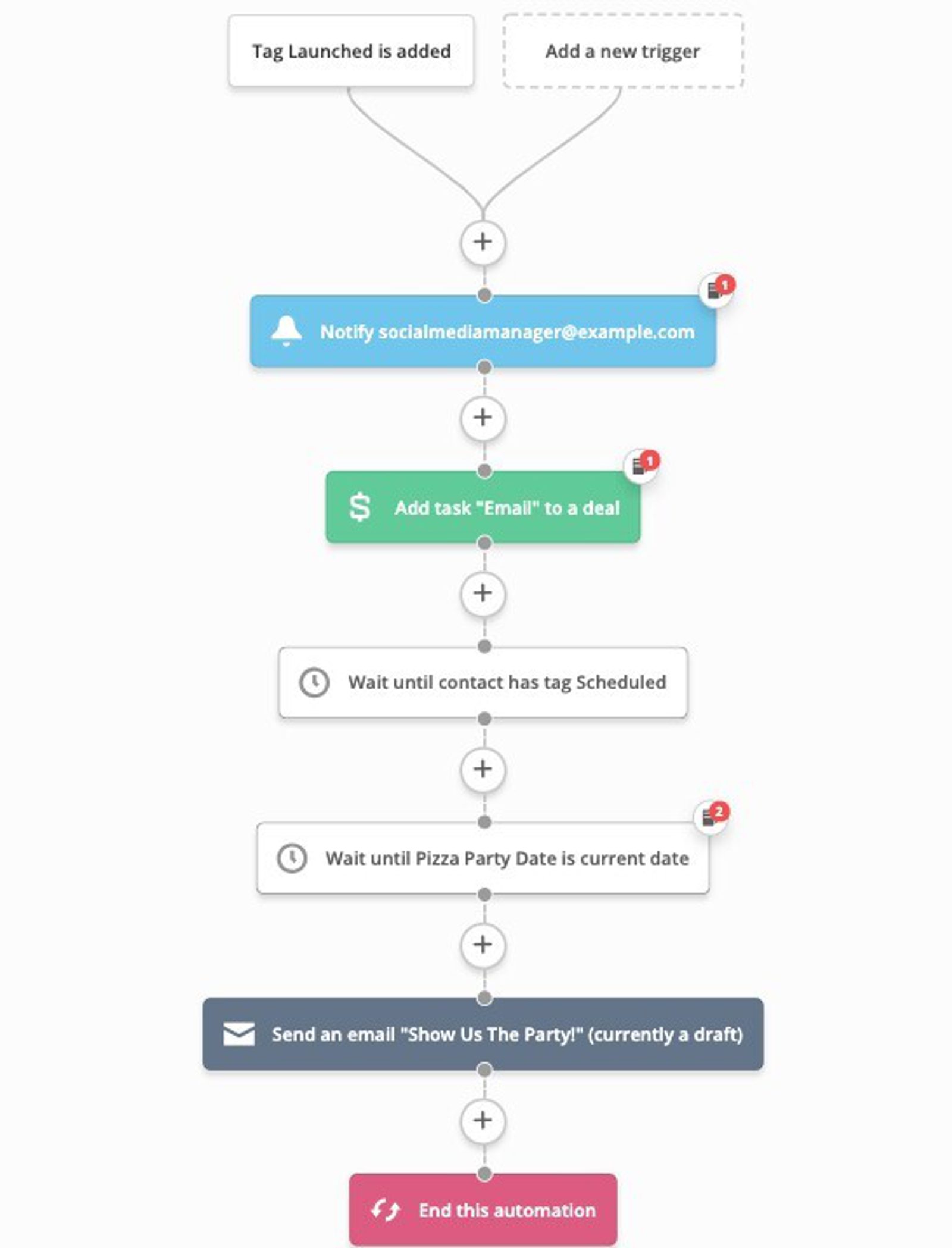
By using automation, Beefy Marketing saves itself a lot of time. It doesn’t have to worry about manually performing contact management, and customers get a quicker and more personalized experience.
Integration
If you’re already using various platforms to manage different parts of your business, you’ll need a platform that enables integrations. This will ensure that all your software is linked in one location, meaning you won’t have to flick between different platforms to manage your workflow.
It also streamlines your data management, giving you access to various data points throughout the customer journey. You can learn more about your customers and personalize their buying experience with this information.
Whether it’s sending follow-up emails for cart abandonment or scheduling social media posts and ad campaigns — integrating with external software can streamline your workflow even further.
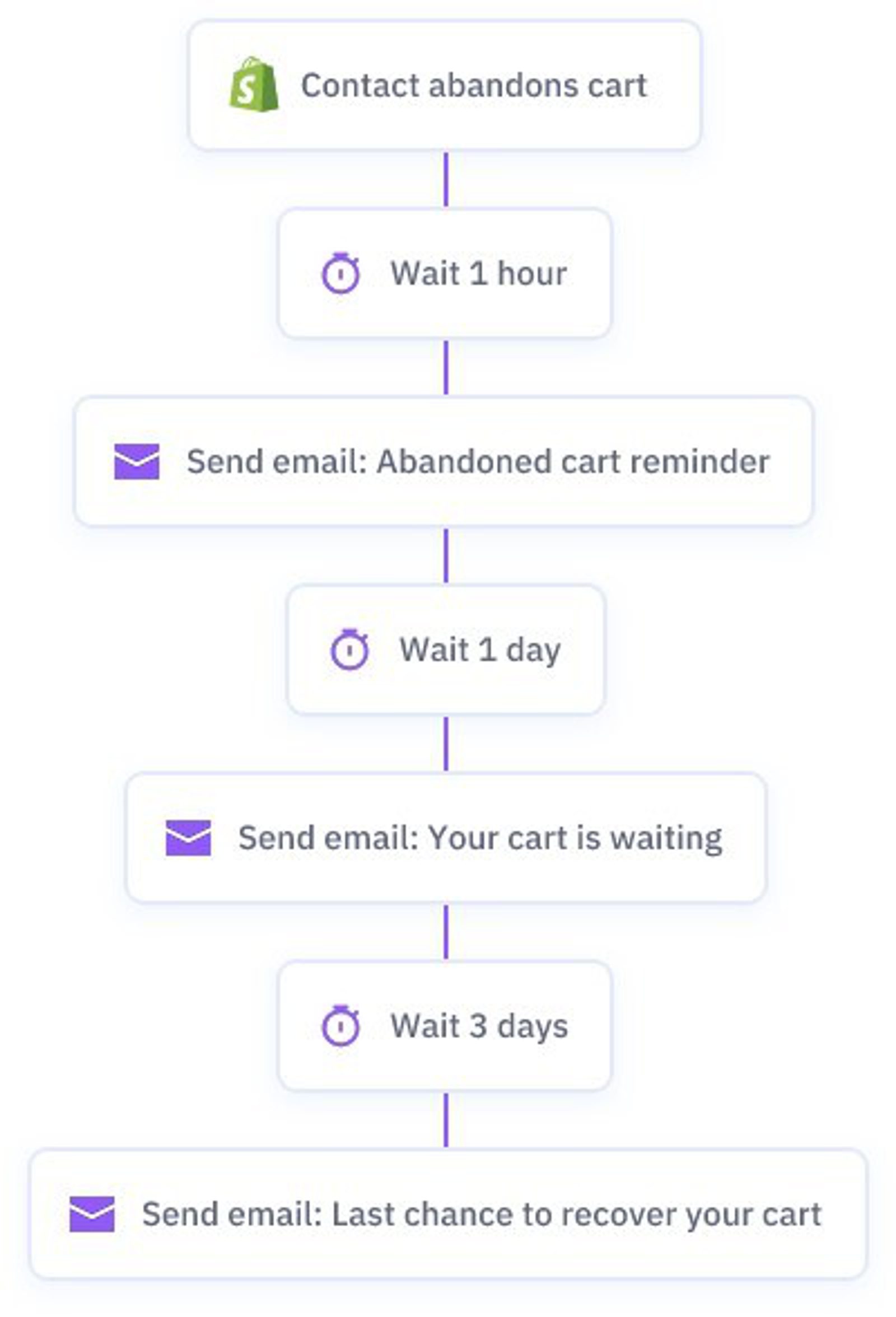
When it comes to finding a CRM project management tool, look at the integrations it offers. Make sure you use a platform that’ll integrate with software you’re already using so you can centralize all of your platforms in one location.
Ease of use
If your software is hard to use, your team might struggle to get things done efficiently. The solution is to find a visually appealing platform that’s simple to use.
Look at ActiveCampaign’s email marketing as an example.
Using our ready-made email marketing templates, you can easily create and send beautifully crafted emails in a matter of clicks. In addition to the fancy visuals, users can create successful email marketing campaigns.
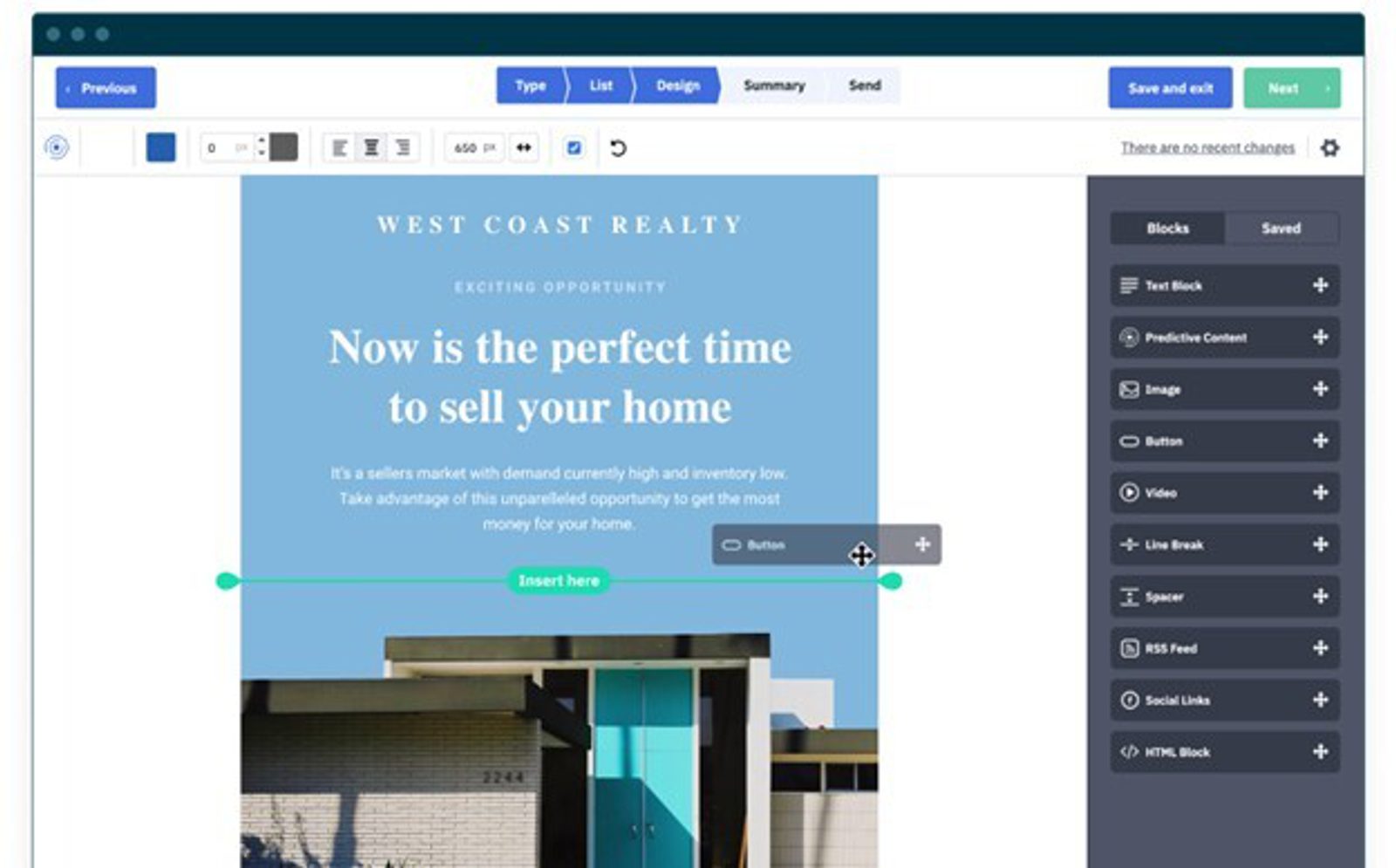
For example, you can segment your audience and personalize the content, allowing you to target consumers with the right information at the right time. It’s the perfect mix of usability and functionality.
So how can you find a platform that has all the features you need and is easy to use?
There are two options:
- Research the platform: This might seem like an obvious point to make, but we’re not talking about trawling through endless company websites to see what they have to say about their products. Instead, search for videos and photos of real businesses using the platform. This will give you first-hand footage of the platform being used, showing you how it works and what it looks like.
- Sign up for a free trial: Test the platforms before committing so that you can see for yourself how intuitive the software is. Most platforms offer a free trial, so give them a go and see what works best.
Use ActiveCampaign for customer experience automation
By now, you’ve got a pretty good understanding of why using a combined CRM project management platform can help your business.
You know that it can improve the customer experience, standardize your process, and you know what features to look out for when you’re trying to find the right platform.
When you’ve got things up and running, don’t forget about customer experience automation.
Integrating a CRM platform like ActiveCampaign will help you automate various parts of the customer journey, providing a personalized and unique experience. Sign up for a demo or free trial to see what you think.

